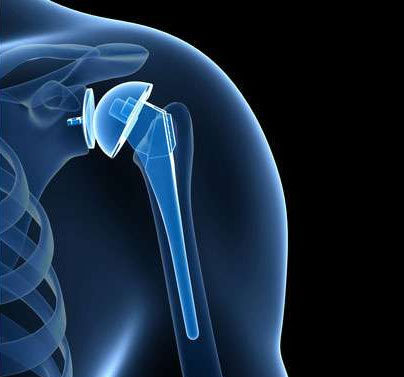Shoulder prosthesis, which means replacing the shoulder joint damaged for various reasons with artificial joints, is a surgical method applied today, although it is less common than knee or hip prosthesis. This method, which was initially used only to treat shoulder fractures, has now begun to be used for many other painful diseases of the shoulder, such as shoulder joint replacement and different forms of arthritis.
When is Shoulder Prosthesis Applied?
If you have difficulty doing daily activities such as dressing, bathing, etc., or if your shoulder pain has become so severe that it wakes you up at night, you may need shoulder replacement surgery. After diagnosis is made with various imaging techniques, treatment of shoulder diseases will be attempted with non-surgical treatments such as medication and activity changes. In cases where these do not help relieve shoulder pain and other complaints, shoulder prosthesis application is planned. We can list the diseases that require shoulder prosthesis as follows.
Osteoarthritis (Degenerative Joint Disease)
This is an age-related “wear and tear” type of arthritis. It usually occurs in people aged 50 and over, but can also occur in younger people. As the shoulder cartilage softens and wears out, the bones rub against each other. Over time, the shoulder joint slowly becomes stiff and painful. Unfortunately, there is no way to prevent the development of osteoarthritis. Osteoarthritis is a common reason why people have shoulder replacement surgery.
Heumatoid Arthritis
This is a disease in which the synovial membrane surrounding the joint becomes inflamed and thickened. This chronic inflammation can damage cartilage and eventually lead to cartilage loss, pain, and stiffness. Rheumatoid arthritis is the most common form of a group of disorders called “inflammatory arthritis.”
Severe Fractures
A severe fracture of the shoulder is another common reason people have shoulder replacements. When the head of the upper arm bone shatters, it can be very difficult for a doctor to replace the bone fragments. Additionally, blood flow to bone fragments may be interrupted. In this case, he may recommend a shoulder prosthesis. Elderly patients with osteoporosis are at high risk for severe shoulder fractures.
How is Shoulder Replacement Surgery Performed?
In shoulder replacement surgery, damaged parts of the shoulder are removed and replaced with artificial components called prostheses. Treatment options may include replacing only the head of the humerus bone (ball), or both the ball and the socket (glenoid).






